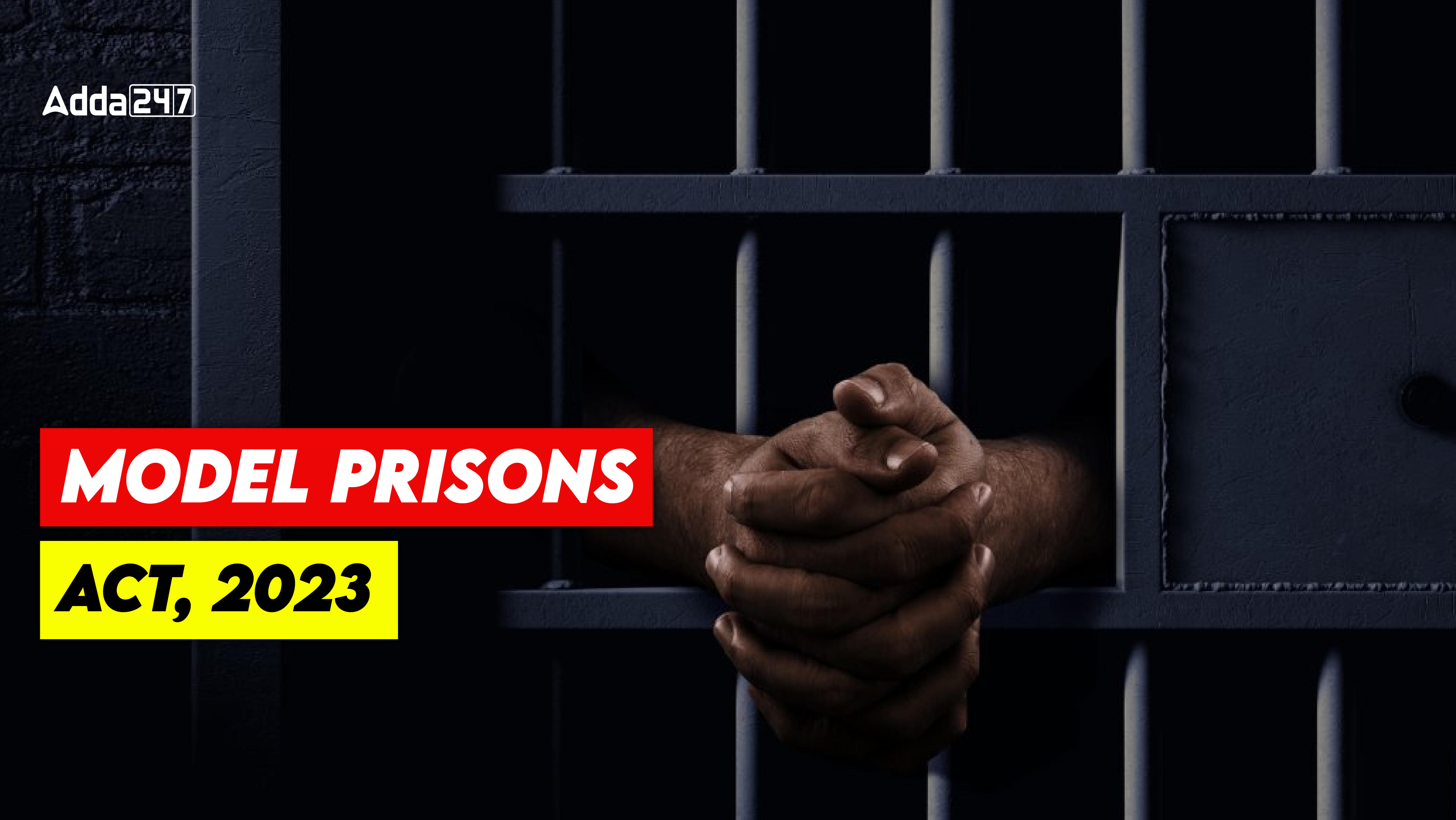Table of Contents
The Model Prisons Act is a significant legislative initiative aimed at replacing the outdated Prisons Act of 1894. This new Act addresses the evolving needs of the prison system, focusing on transforming prisons into reformative institutions, improving living conditions for inmates, and ensuring the protection of their fundamental and legal rights.
Model Prisons Act, 2023
The Central government decided to review and update the colonial-era Prisons Act of 1894 to align with contemporary needs and modern correctional practices. Recognizing the necessity for reforms in prison management, the Ministry of Home Affairs tasked the Bureau of Police Research and Development with revising the outdated legislation. Below given points will highlight the details of the Model Prisons Act, of 2023 and why it is an important topic for the UPSC exam.
Why we needed for the Model Prisons Act, 2023?
The need for the Model Prisons Act arises from several critical factors:
- Reformative Focus: To transform prisons from punitive institutions into reformative ones that help inmates reintegrate into society.
- Improved Living Conditions: To enhance the living standards within prisons, ensuring they meet humane and dignified conditions.
- Prevention of Custodial Misconduct: To prevent custodial torture, deaths, and other forms of mistreatment, ensuring the safety and well-being of prisoners.
- Protection of Rights: To better protect the fundamental and legal rights of prisoners, aligning with modern human rights standards.
Key Features of the Model Prisons Act, 2023
The Model Prisons Act incorporates several progressive features aimed at holistic prison reform:
- Parole, Furlough, and Remission: Introduces provisions for parole, furlough, and remission to incentivize good behavior among prisoners.
- Vocational Training and Skill Development: Focuses on vocational training and skill development programs to prepare inmates for life after release.
- Attitudinal Change: Emphasizes the need to shift societal and institutional attitudes towards prisoners, promoting a more rehabilitative approach.
- Separate Units for Women and Transgender Inmates: Establishes separate facilities for women and transgender prisoners to address their specific needs and ensure their safety.
- Technological Integration: Introduces modern technology in prison administration to enhance security and operational efficiency.
- Digitization: Proposes the digitization of prison records and facilities, including video conferencing for court appearances, reducing the need for physical transfers.
- Open and Semi-Open Jails: Suggests the establishment of open or semi-open jails to facilitate a gradual reintegration of inmates into society.
Challenges to Implementation of Model Prisons Act, 2023
Despite its progressive framework, the Model Prisons Act faces several challenges:
- Undertrial Prisoners: A significant number of inmates are undertrials, which complicates prison management and reform efforts.
- Staff Shortages: There are numerous vacancies for prison officials, leading to an overburdened and inefficient prison administration.
- Corruption and Bias: Corruption within the system and preferential treatment for certain classes of prisoners undermine the Act’s objectives.
- Funding Issues: Adequate funding is essential for the successful implementation of the Act’s provisions, and current financial allocations may be insufficient.
Guiding Light for States
The Model Prisons Act serves as a comprehensive guide for States, given that prisons fall under the State List in India’s federal structure. By adopting and adapting the Act’s provisions, States can ensure more humane, secure, and efficient prison management.
In conclusion, the Model Prisons Act represents a forward-thinking approach to prison reform in India. By focusing on reformation, technology integration, and protection of inmates’ rights, it aims to create a more equitable and effective prison system. However, its success will depend on addressing implementation challenges and securing the necessary resources and political will to bring about meaningful change.



 TSPSC Group 1 Question Paper 2024, Downl...
TSPSC Group 1 Question Paper 2024, Downl...
 TSPSC Group 1 Answer key 2024 Out, Downl...
TSPSC Group 1 Answer key 2024 Out, Downl...
 UPSC Prelims 2024 Question Paper, Downlo...
UPSC Prelims 2024 Question Paper, Downlo...
